Our plans included raising sales in the online store, increasing the number of subscribers, and expanding reach. We also aimed to grow the audience of the mobile app and reduce costs for achieving target actions.
- Contextual advertising via Yandex.Direct.
- Targeted advertising in the new VK advertising account.
- Advertising on Telegram through the ’MTS Marketer’ platform.
- Analytics.
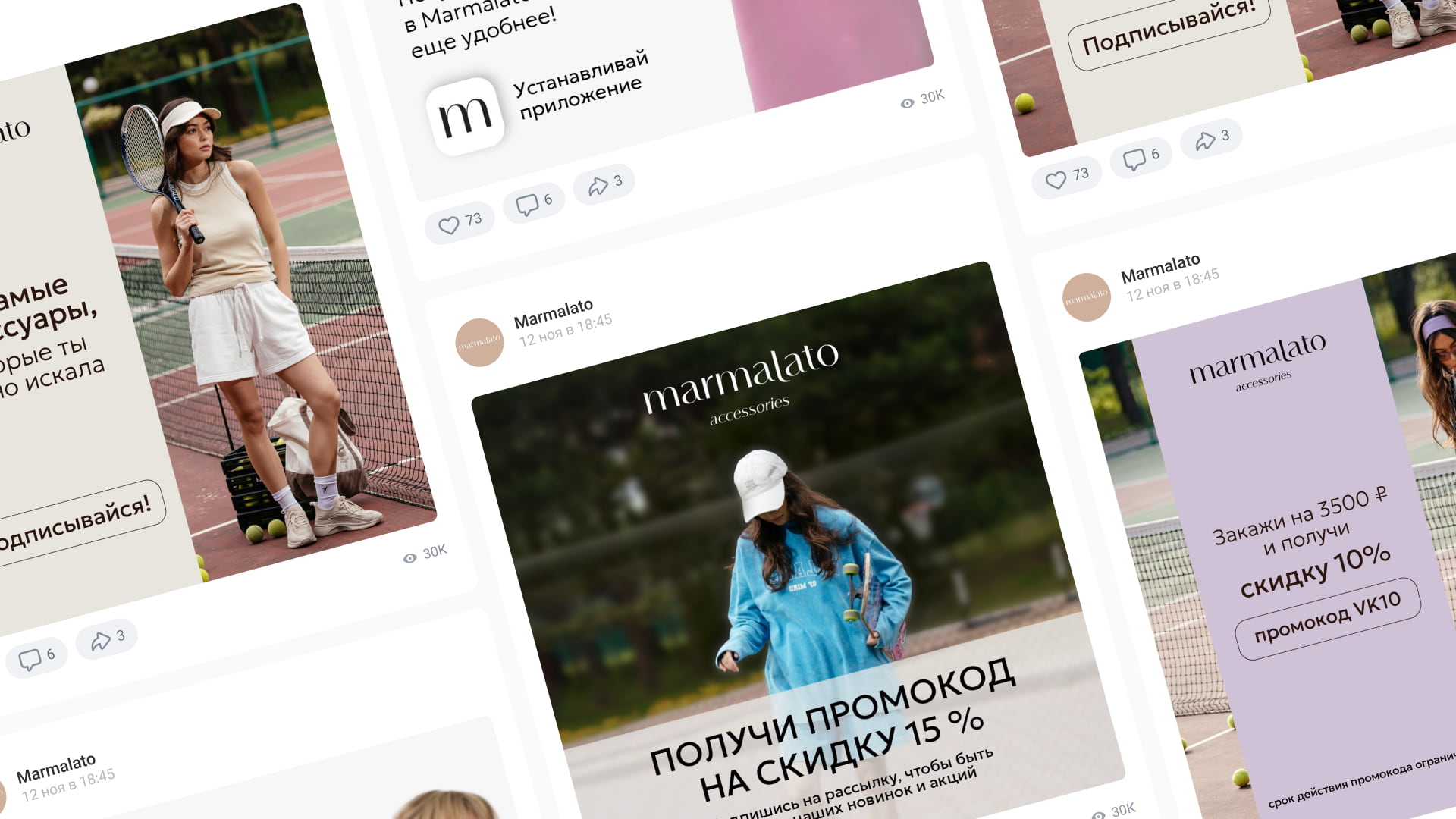
 4
4
Thanks to targeted advertising, we increased engagement among community subscribers and boosted the number of subscriptions.
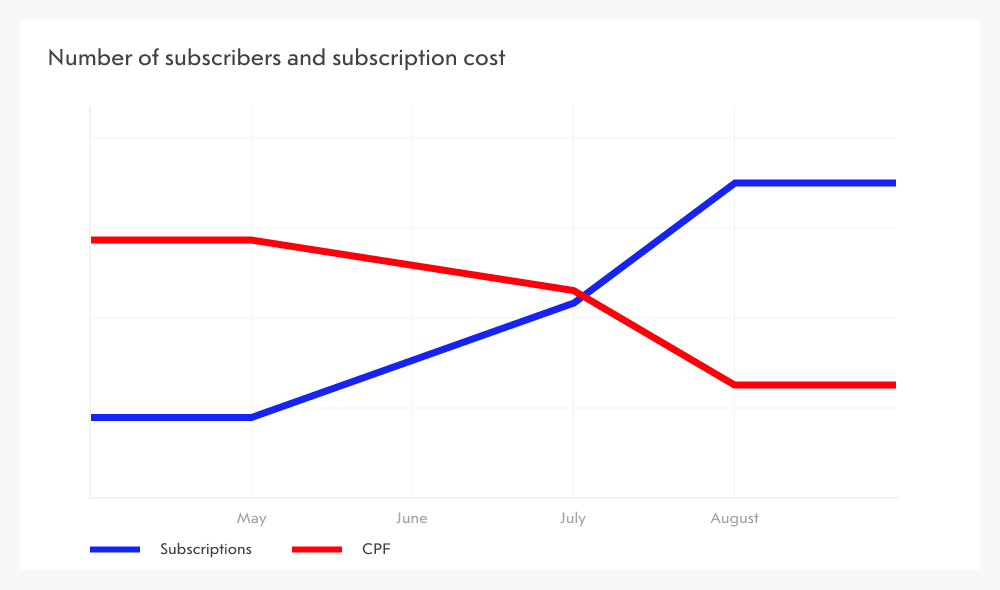
A creative campaign about fashion trends attracted nearly 400 people to the community.
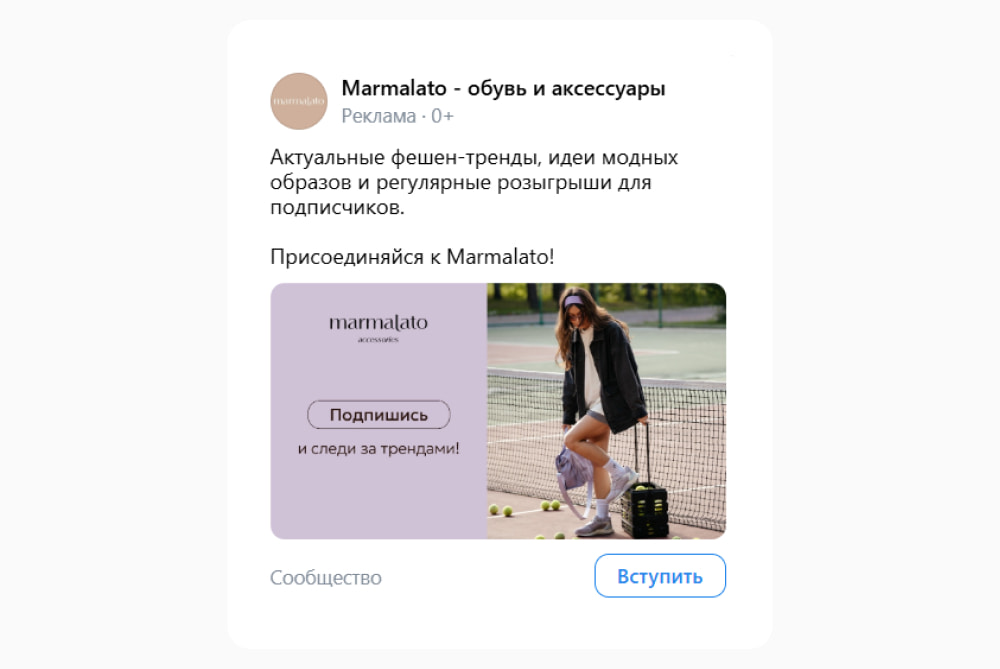
 2,4
2,4
Promoting the Senler newsletter with promo codes yielded the best results in targeted advertising.
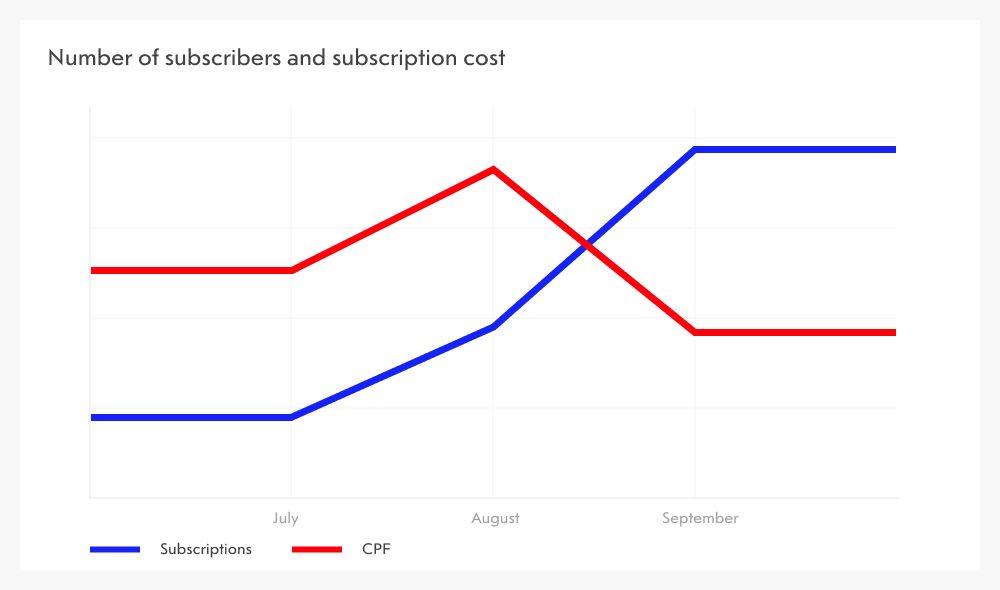
Senler is a service responsible for newsletters within VKontakte. Visitors subscribe to Senler to receive discount promo codes, information about promotions, and updates on the Marmalato assortment.
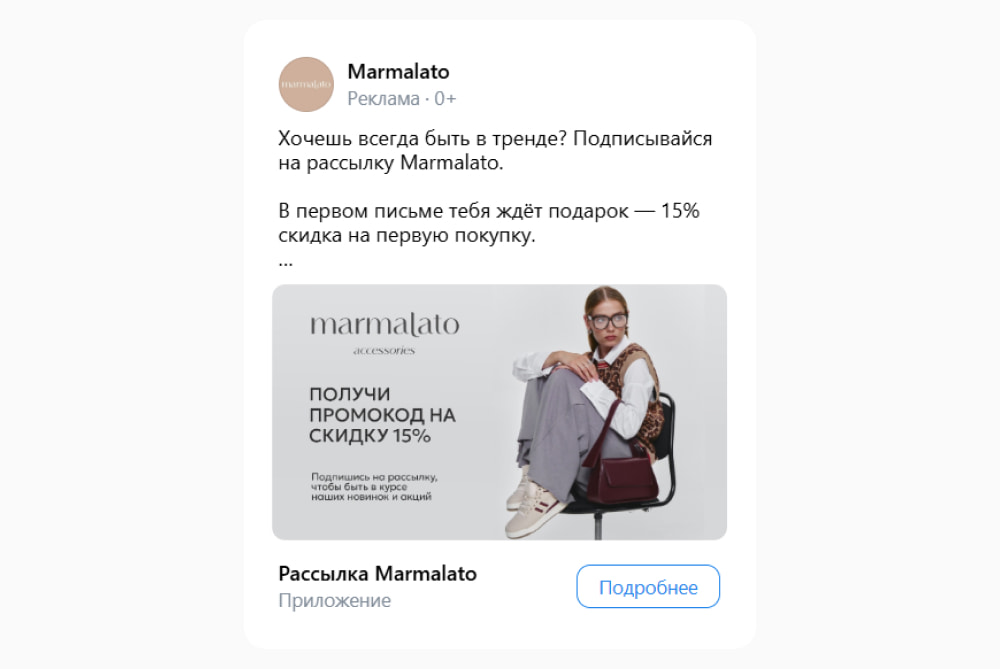
By targeting audiences of competitors in Telegram, we achieved subscriptions at minimal costs. However, in VK, the costs were higher.
Using VK advertising, we provided users with a more convenient communication channel with the brand.
Through universal ads, we engaged with website visitors and the customer contact database.
We also tested audiences such as members of competitor communities and people interested in purchasing women’s clothing and accessories.
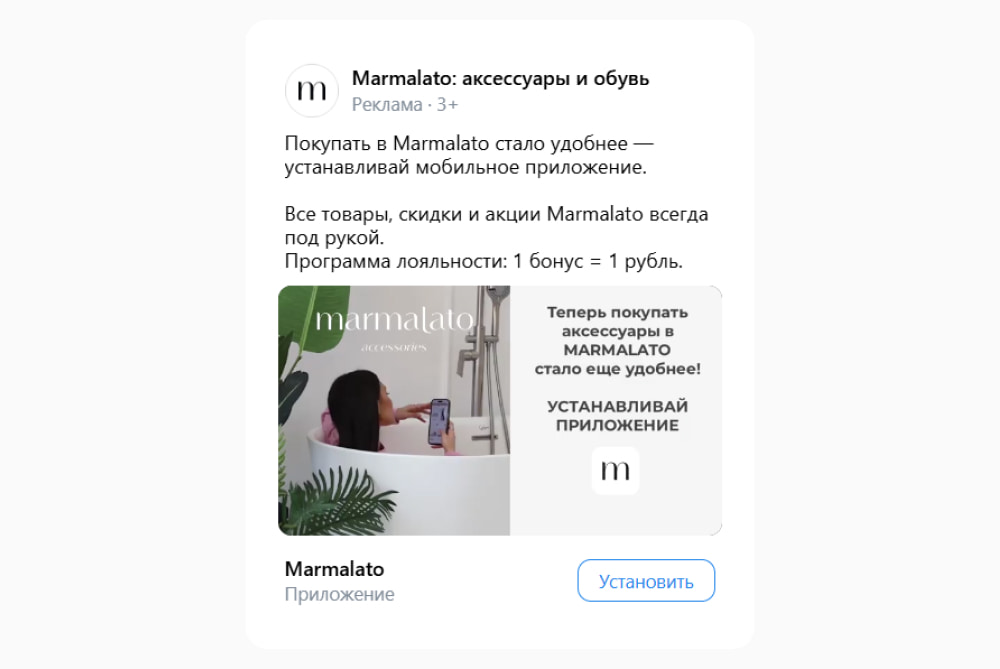
We uploaded the catalog to the advertising account, and the carousel ad display scenarios were based on products the user had previously interacted with on the website or in the mobile app.
We analyzed data using mobile trackers: AppsFlyer and App Metrica.

We ran creatives encouraging users to install the app and tested multiple ad variations.
We targeted cold audiences based on categorical queries.
During the promotion period, we managed to reduce CPI by more than six times.
We are running contextual campaigns in Yandex.Direct and actively working on the ROMI metric.
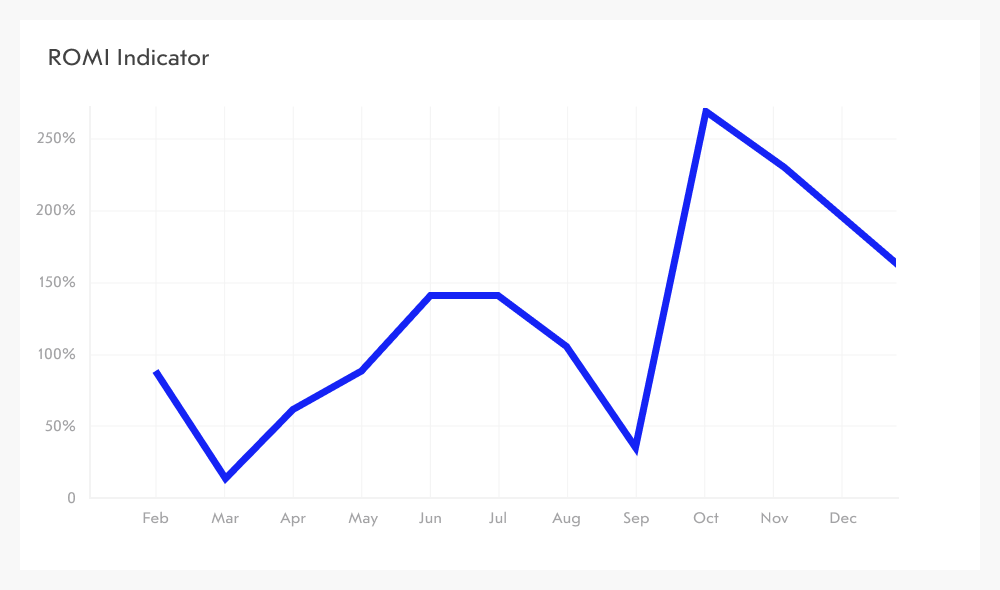
We constantly analyze the ROMI metric by regions and products, excluding those where the metric is below 100%.
We tested various formats of advertising campaigns, identified the most effective ones, and continued to work with them while disabling the others.
A couple of months after these campaigns were turned off, a cumulative effect took place—the audience continued to grow, which in turn increased ROMI.
The tool proved its effectiveness. Therefore, we planned to scale this tool and test new formats and hypotheses.
For this, we implemented universal and tracking links together with the Marmalato team. The effectiveness of the advertising increased, and users could use the most convenient platform.
 7
7
To drive additional traffic, we set up advertising on marketplaces and achieved a ROMI of over 100%.
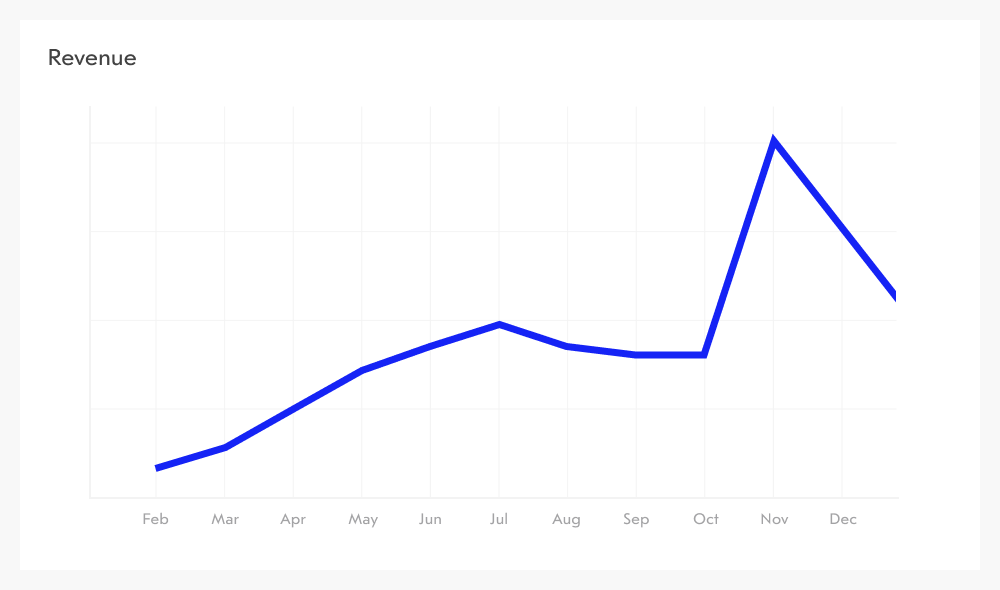
We resolved the issue with dynamic retargeting, which prevented matching events on the website with products and the catalog in the advertising account.
The report uses statistics from Yandex.Metrica, Direct, and AppMetrica. We combine information on offline and online sales, breaking it down by regions, campaigns, etc.
This allowed us to partially automate reporting on advertising campaigns and improve analytics.
The data is updated daily. When the specialist starts working, all information is already up to date.
- Reduced the cost of community subscribers by 55%.
- Decreased the cost of Senler subscribers by 20%.
- Achieved a ROMI of 276% in contextual advertising.
- Attained a sevenfold increase in revenue thanks to contextual advertising.
We were provided access to analytics systems and webmaster services, the client’s semantic core, as well as websites considered to be competitors.
- Analyzed the website based on 57 criteria.
- Assessed the current state of internal optimization of the website.
- Analyzed the external optimization of the website (link profile).
- Prioritized errors from critical to minor.
- Provided recommendations for correction for each point.
- Estimated the time required to fix the errors identified in the audit.
- Collected metrics.
- Analyzed search queries in Yandex and Google.
- Provided comments on queries that we recommend excluding from the semantic core.
- Conducted an analysis of the collected semantics across four regions: Moscow, St. Petersburg, Novosibirsk, and Yekaterinburg.
- Determined the share of branded and non-branded queries.
- Compiled an approximate semantic core for the website across the four regions.
- Gathered competitor websites from the top 10 search results in Yandex and Google based on this semantics.
- Created SEO recommendations based on competitor analysis.
- Determined the share of regional queries.
- Determined the share of regional non-branded queries.
- Determined the share of regional branded queries.
- Provided examples of popular regional queries.
- Determined the regions of queries and highlighted 10 popular regions based on Yandex.Metrica.
- Compiled a list of 66 regions based on the analysis of regional queries.

Our work won 3rd place in the ’Targeted Campaigns in Social Media’ category at the Tagline Awards 2024.